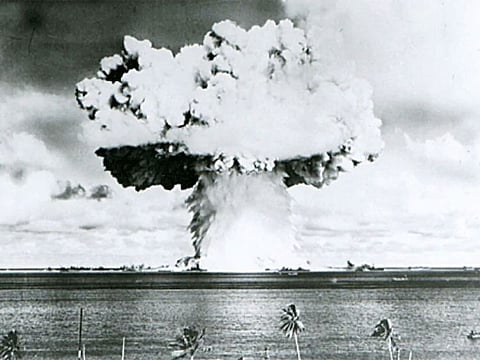Five billion face death in full-scale nuclear war, study shows
Scientists mapped out the effects of six possible nuclear conflict scenarios

New Jersey: Five billion people would die in a modern nuclear war with the impact of a global famine - triggered by sunlight-blocking soot in the atmosphere - likely to far exceed the casualties caused by lethal blasts.
Scientists at Rutgers University mapped out the effects of six possible nuclear conflict scenarios. A full-scale war between the US and Russia, the worst possible case, would wipe out more than half of humanity, they said in the study published in the journal Nature Food.
The estimates were based on calculations of how much soot would enter the atmosphere from firestorms ignited by the detonation of nuclear weapons. Researchers used a climate forecasting tool supported by the National Center for Atmospheric Research, which allowed them to estimate productivity of major crops on a country-by-country basis.
Even a relatively small-scale conflict would have devastating consequences for global food production. A localised battle between India and Pakistan would see crop yields decline by an estimated 7 per cent within five years, the study suggested, while a US-Russia war would see production fall by 90 per cent within three to four years.
Researchers also considered whether utilising crops currently used as animal feed or reducing food waste could offset losses in the immediate aftermath of the conflict, but concluded that savings would be minimal in larger-scale battles.
The study comes after the specter of conflict between the US and Russia was raised following Vladimir Putin's invasion of Ukraine. Russian Foreign Minister Sergei Lavrov warned in April that there was a "serious" risk of nuclear war breaking out.
"The data tell us one thing," said Alan Robock, the study's co-auther and a professor of climate science in the Department of Environmental Sciences at Rutgers University. "We must prevent a nuclear war from ever happening."



